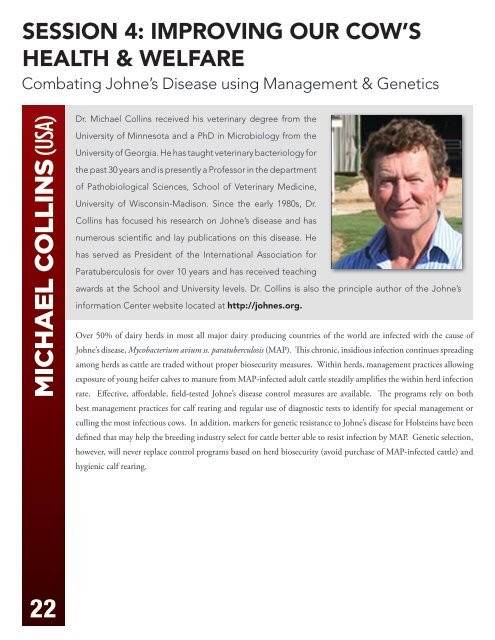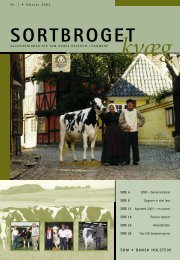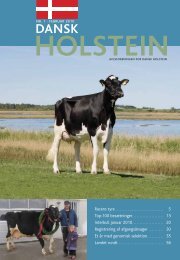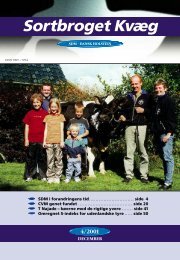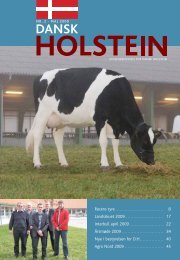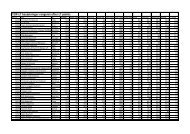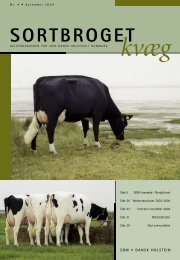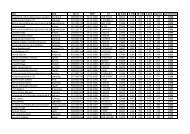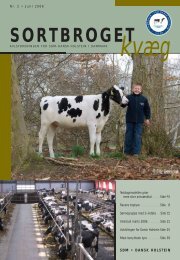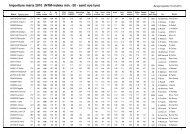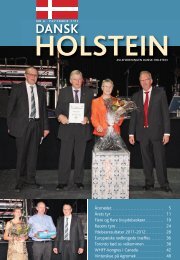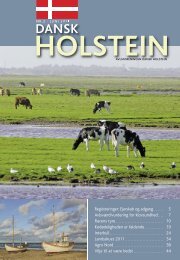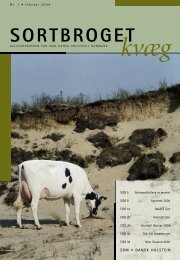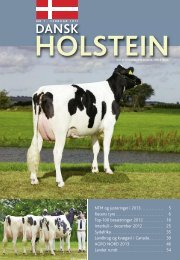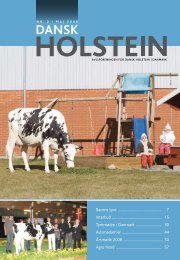2012 WORLD HOLSTEIN CONFERENCE - Dansk Holstein
2012 WORLD HOLSTEIN CONFERENCE - Dansk Holstein
2012 WORLD HOLSTEIN CONFERENCE - Dansk Holstein
You also want an ePaper? Increase the reach of your titles
YUMPU automatically turns print PDFs into web optimized ePapers that Google loves.
SESSION 4: IMPROVING OUR COW’SHEALTH & WELFARECombating Johne’s Disease using Management & GeneticsMICHAEL COLLINS (USA)Dr. Michael Collins received his veterinary degree from theUniversity of Minnesota and a PhD in Microbiology from theUniversity of Georgia. He has taught veterinary bacteriology forthe past 30 years and is presently a Professor in the departmentof Pathobiological Sciences, School of Veterinary Medicine,University of Wisconsin-Madison. Since the early 1980s, Dr.Collins has focused his research on Johne’s disease and hasnumerous scientific and lay publications on this disease. Hehas served as President of the International Association forParatuberculosis for over 10 years and has received teachingawards at the School and University levels. Dr. Collins is also the principle author of the Johne’sinformation Center website located at http://johnes.org.Over 50% of dairy herds in most all major dairy producing countries of the world are infected with the cause ofJohne’s disease, Mycobacterium avium ss. paratuberculosis (MAP). This chronic, insidious infection continues spreadingamong herds as cattle are traded without proper biosecurity measures. Within herds, management practices allowingexposure of young heifer calves to manure from MAP-infected adult cattle steadily amplifies the within herd infectionrate. Effective, affordable, field-tested Johne’s disease control measures are available. The programs rely on bothbest management practices for calf rearing and regular use of diagnostic tests to identify for special management orculling the most infectious cows. In addition, markers for genetic resistance to Johne’s disease for <strong>Holstein</strong>s have beendefined that may help the breeding industry select for cattle better able to resist infection by MAP. Genetic selection,however, will never replace control programs based on herd biosecurity (avoid purchase of MAP-infected cattle) andhygienic calf rearing.22


